Wars and battles have been common as many dynasties ruled different parts of India. Along with this, it was the British rule that led to multiple massacres, wars and unrest between the people. One such assassination that moved the entire nation of India was the assassination of Mahatma. On Gandhi Punyatithi, the world mourns for the loss of a leader who believed in non-violence and truth.
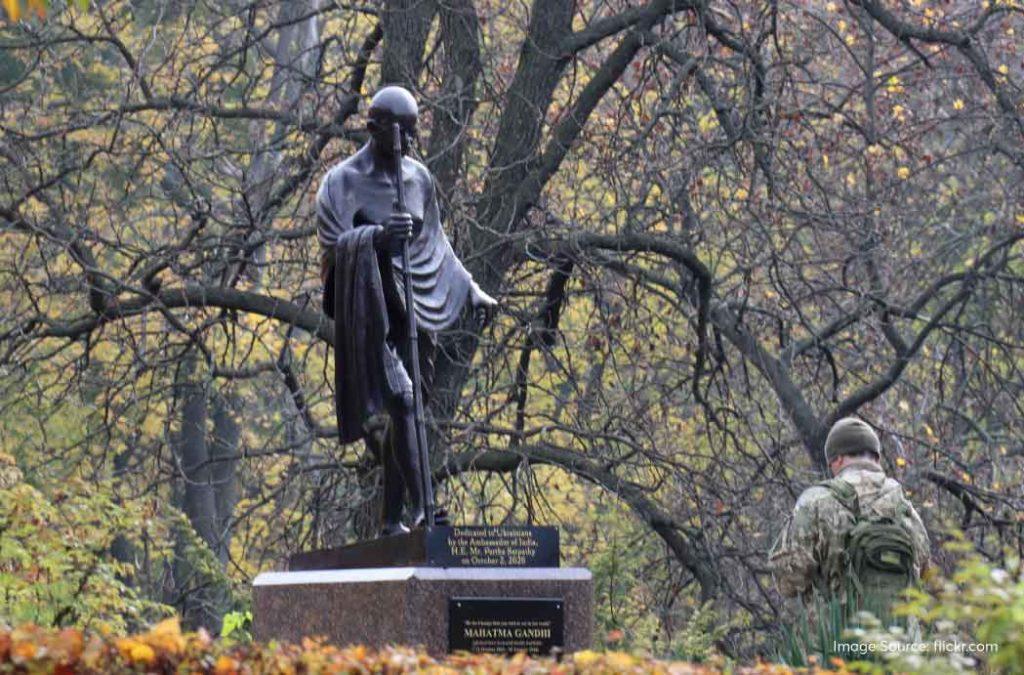
Gandhi Punyatithi (death anniversary) is observed on 30th January. The country not only pays homage to the leader but also honours his unparalleled contributions to the country’s freedom struggle. In modern times, the significance of Gandhi has only risen due to his renowned acts and slogans. While Gandhi still remains an integral part of Indian history, let’s better understand his glory and long-living legacy.
[treebo_visual_elements header=”Book Budget Hotels in Ahmedabad” city=”Ahmedabad”]
Gandhi Punyatithi: Tracing Back in Time
We all know Gandhi as the Father of the Nation and to know that he was assassinated comes as a deep shock even in modern times. It is indeed important to understand the history of his assassination consisting of mixed views. Mahatma Gandhi was assassinated on 30th January 1948 which was quite soon after India gained Independence from British rule.
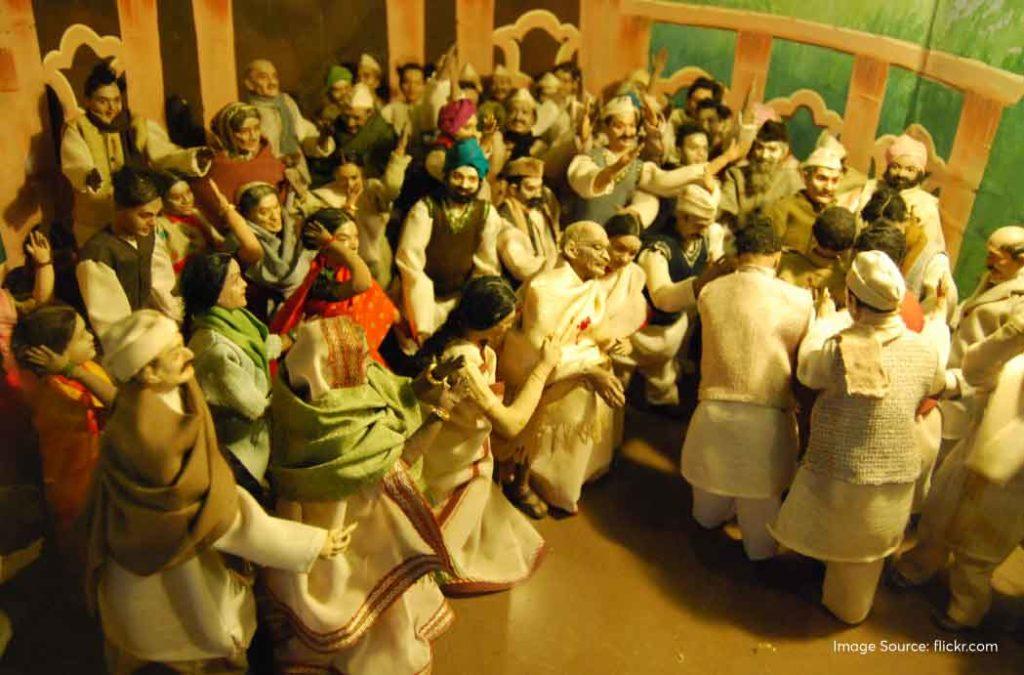
You must be wondering if it was any of the British officers or an enemy who indulged in this heartbreaking crime. However, the leader was assassinated by Nathiram Godse, a Hindu nationalist. It is only sad for you to know that he was assassinated during a prayer meeting at the Birla House in New Delhi. As Godse bowed to pay respect to Gandhi, he just then fired three bullets into Mahatma’s chest. It is also noted that he was shot at point-blank range, thereby suggesting that the assassination was very well planned. As Gandhi collapsed, he uttered his last words: Hey Ram!
1. Partition of India
Going back to 1948, Gandhi’s assassination was not a sudden incident. It was right since the partition of India and Pakistan when Gandhi settled in the hatred of Nathuram Godse. While Gandhi did not support the idea of partition, Godse believed that he was secretly supporting it. Gandhi even insisted on transferring INR 55 crores to Pakistan as a part of the partition agreement. That is when Godse started believing that such acts of Gandhi led to unfair treatment of the Hindus. He also believed that Gandhi was prioritising the interests of Muslims, thereby betraying Hindus.
2. Favourism towards Muslims
Nathuram also believed that Gandhi’s acts of Hindu-Muslim unity were not of great significance to the Hindus. He, in fact, opposed this idea as it would weaken the supremacy of Hindus. He even disbelieved the principles of non-violence and trust after witnessing the consequences of partition. That’s when he joined hands with Narayan Apte to plan the assassination.
Aftermath
Later, Godse delivered an elaborate speech to the public stating his reasons and beliefs about Gandhi’s favouritism for Muslims. While some believed him, others deeply mourned the loss of a heroic freedom fighter. Many believed that Godse disrupted the foundational values of India by this spine-chilling assassination. It sparked rage among many as Gandhi’s death invited attention from the globe. As hard as it is to believe, this assassination continues to spark debates between people, communities and leaders.
Modern-Day Observations on Gandhi Punyatithi
1. Sarva Dharma Prarthana Sabha
As Gandhi followed Hinduism, Prarthana Sabha (prayer meeting) has been an integral part of his Punyatithi. This prayer meeting is held at Raj Ghat, where you can find many communal leaders and followers of Gandhi.
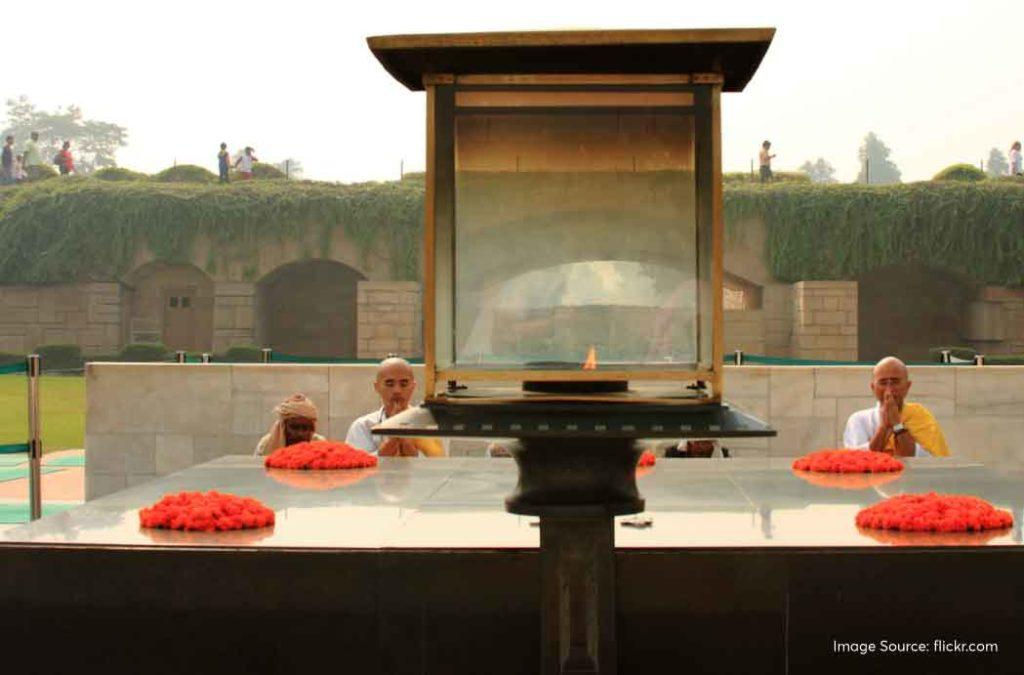
The environment is filled with a sense of loss and grief as people mourn together. People stand in silence, remember his glory and pay homage to the father of the nation. If you are planning to visit to pay respect, it is best to book affordable hotels near Rajghat Delhi for a comfortable time.
2. Educational Programs
Gandhi Punyatithi is an important day for the young generation to learn about the sacrifices and struggles of the leader. Hence, educational institutions play a big role in communicating the message of nonviolence and truth on this big day. Many schools and colleges organise special assemblies to honour Mahatma Gandhi. Students and teachers observe silence followed by a speech on Gandhi’s bravery. You can generally hear his principles echoing off the walls of educational institutions on this day.
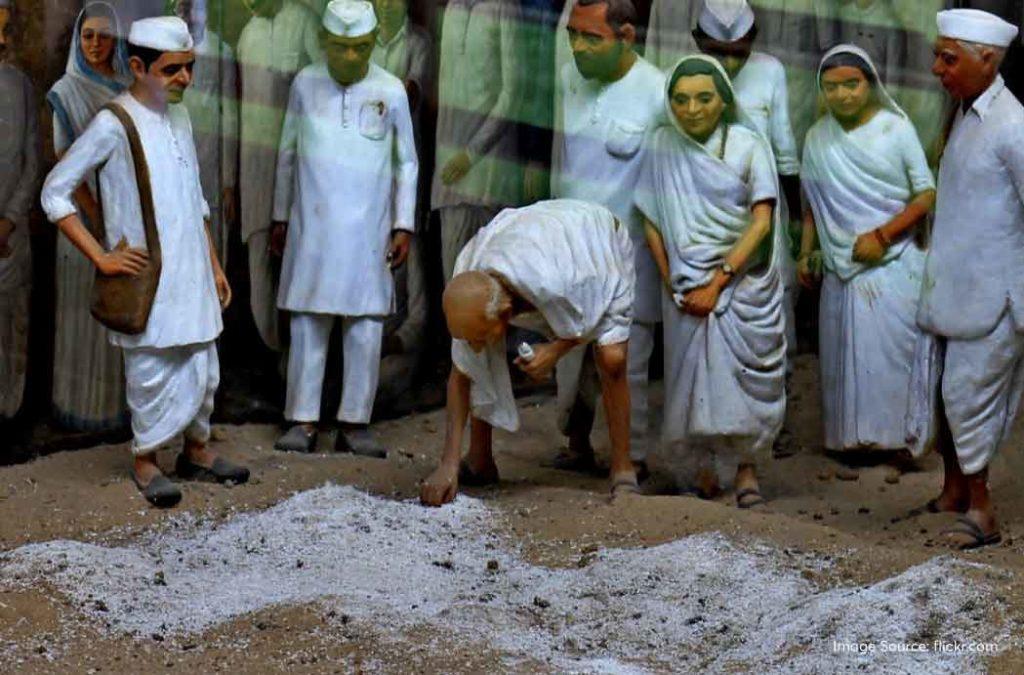
Additionally, some universities and schools go the extra mile to educate children about the principles of Gandhi. Various discussions and seminars are held to remember his contributions. His moral values are well put into words by communal leaders and special guests who are connected with Gandhi’s philosophy. Such events create a sense of patriotism and courage in the youth.
3. Cultural Events
Mahatma Gandhi has been a hero in the lives of most Indians. Apart from schools and colleges, community centres and the general public also participate in honouring the leader. At times, students are encouraged to perform a skit of Gandhi’s life and his principles. Children take different roles, narrate the dialogues and spread messages of non-violence.
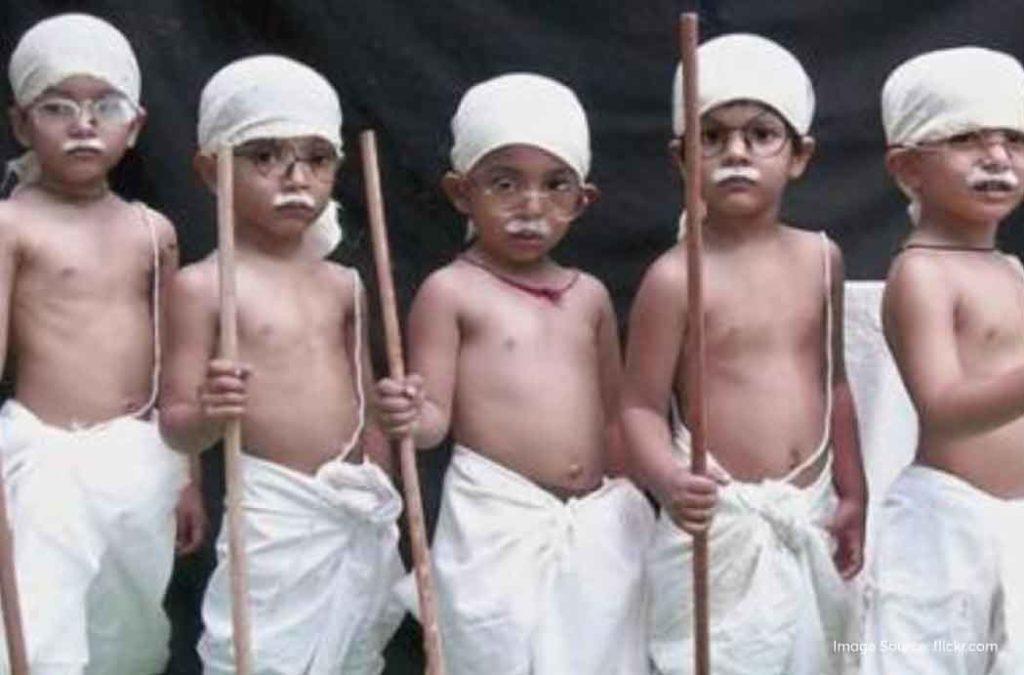
Interestingly, many children are also dressed up as Gandhi to pass the message in a strong way. You can find students enacting famous acts of Gandhi, including the Salt March. Even his slogans are made up on posters for the public to read and know of his legacy. The involvement of community members makes this day significant for the generations to come. At times, you can even find documentary screenings on Gandhi Punyatithi.
3. Peace Marches
You must have heard of rallies conducted on some or the other occasion. The case is different when we talk about the Gandhi Punyatithi. On this day, many children as well as adults participate in a peace march. They generally wear the subtle white colour to spread the message of non-violence. Children are dressed as Mahatma Gandhi and often take the lead in such marches. This is especially done to spread the morals and principles of Gandhi in a subtle way.
4. Community Service Initiatives
Mahatma Gandhi always worked for the betterment of people. He not only initiated acts and events for the community but also kept spreading the word of harmony. He opened the Sabarmati Ashram in Ahmedabad, where people from all walks of life learnt simplistic living. You can also book budget-friendly hotels in Ahmedabad to visit this Ashram and contribute towards the community. On Gandhi Punyatithi, you can find many ashrams indulging in social work.
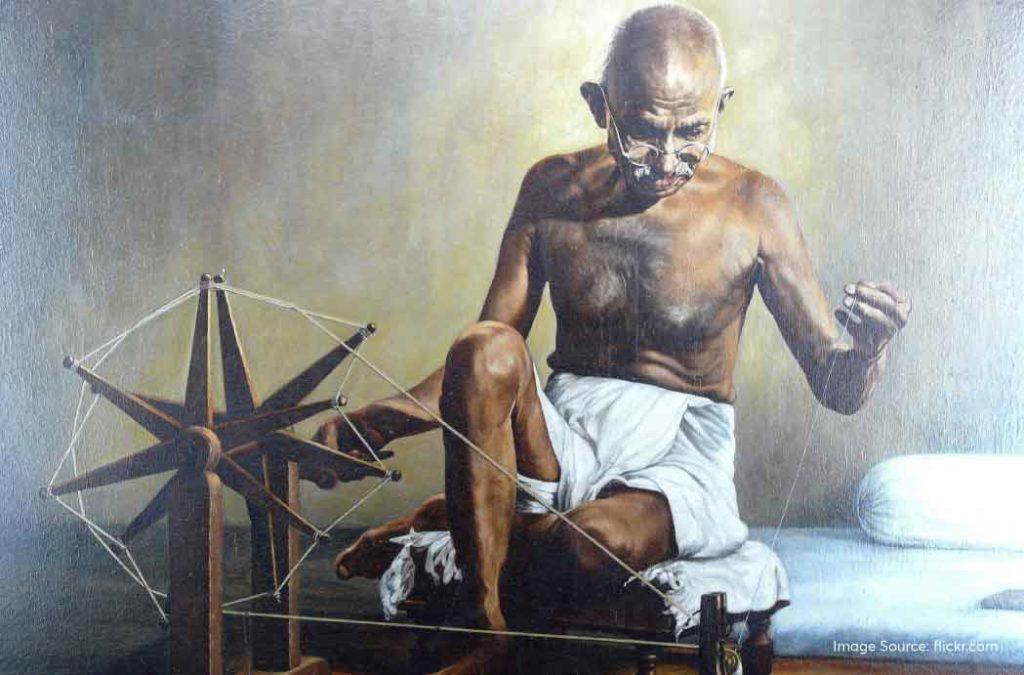
People all across the country also get inspired by the cleanliness efforts of Gandhi. He always encouraged people towards hygiene and sanitation. In today’s time, many people gather for cleanliness drives. It could be beach cleaning or cleaning the vicinity of residences. Many social service groups in colleges indulge in activities that lead to better sanitation and living conditions for the needy.
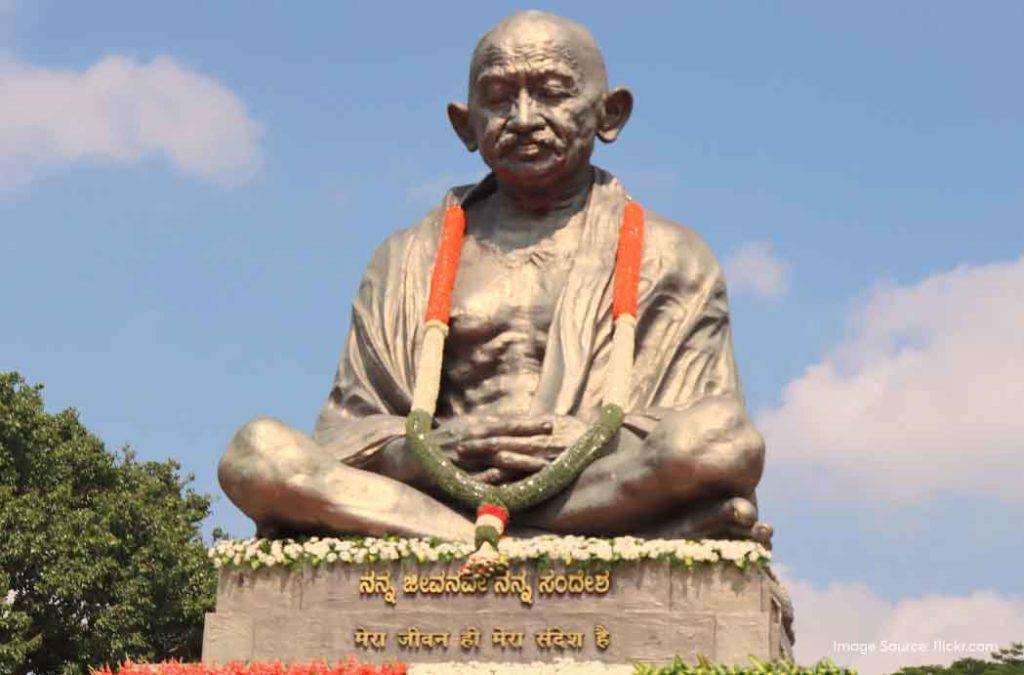
Apart from this, Gandhi Punyatithi also witnesses charity events. Most of these events are conducted to collect funds for the underprivileged. You can find marathons or other events where funds are raised on the death anniversary of the leader. All thanks to the Harijan movement children from different backgrounds are now treated equally! The charity amount is then donated to NGOs, community centres or for the upliftment of society.
5. Social Media
The observance of Gandhi Punyatithi is not limited to activities and events. You can now find the observance of this day even on social media platforms. In modern times, various social media campaigns are dedicated to highlighting Gandhi’s life and his philosophies. Most of these posts and videos promote the message of peace and nonviolence. What’s more? Such messages encourage audiences to participate in activities that reflect the morals and values of Mahatma Gandhi.
Additionally, the young generation gets an excellent opportunity to share stories, quotes and different life events of Gandhi. It is through social media platforms like Instagram, Facebook and Twitter that the public learns the relevance of this freedom fighter. As creative as it gets, Gandhi Punyatithi also witnesses different hashtags trending on social media apps. You can also be a part of interactive content, including quiz competitions and different polls. There are also multiple storytelling posts where you can find facts and teachings that resonate with your life.
Along with this, the trend of short videos really helps creators engage in Gandhi’s life. The usage of video-making apps helps creators showcase the life of Gandhi in an eye-pleasing manner. At times, different testimonials from leaders inspired by his life are also displayed on social media.
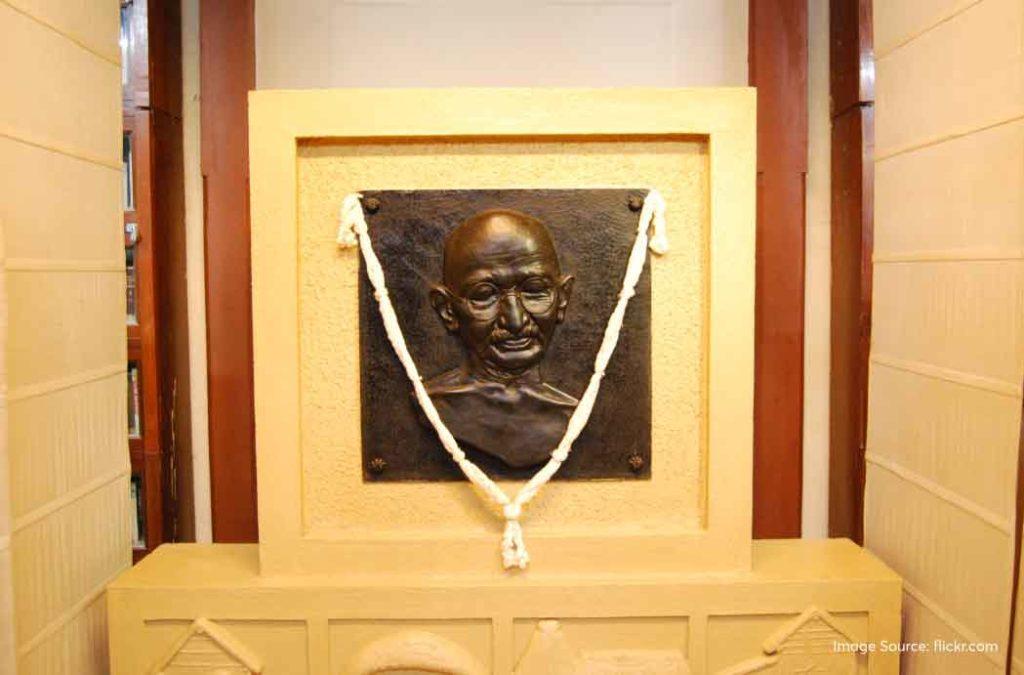
If you cannot be a part of a physical seminar or discussion, make sure to be a part of multiple discussions and webinars. Most of these conduct life storytelling sessions, prayer meetings and discussions on Gandhi’s principles in an elaborate manner. These webinars help the younger generation understand the aspects of cleanliness, the importance of Khadi and the essence of equality.
No wonder that Gandhi Punyatithi is even bigger for different brands on social media platforms. Many brands organise competitions promoting the essence of nonviolence and peace. There can be competitions for painting, drawing, illustration making, reel making and poetry writing. The themes for the competition can be anything from self-reliance, sustainable living, principles of Gandhi, cleanliness and so on.
The impact of social media encourages companies, people, the young generation and government authorities to indulge in community service activities. The widespread message helps not only Indians but also international audiences to learn about the legacy of Mahatma Gandhi.
Easy Ways to Actively Participate in Gandhi Punyatithi
- Observe a two-minute silence at 11 AM to honour the father of the nation along with other martyrs on this day.
- Attend any prayer meeting organised by the government or community centres to pay your respects.
- Volunteer for community service activities including cleaning, distributing goods to the needy, teaching underprivileged children and so on.
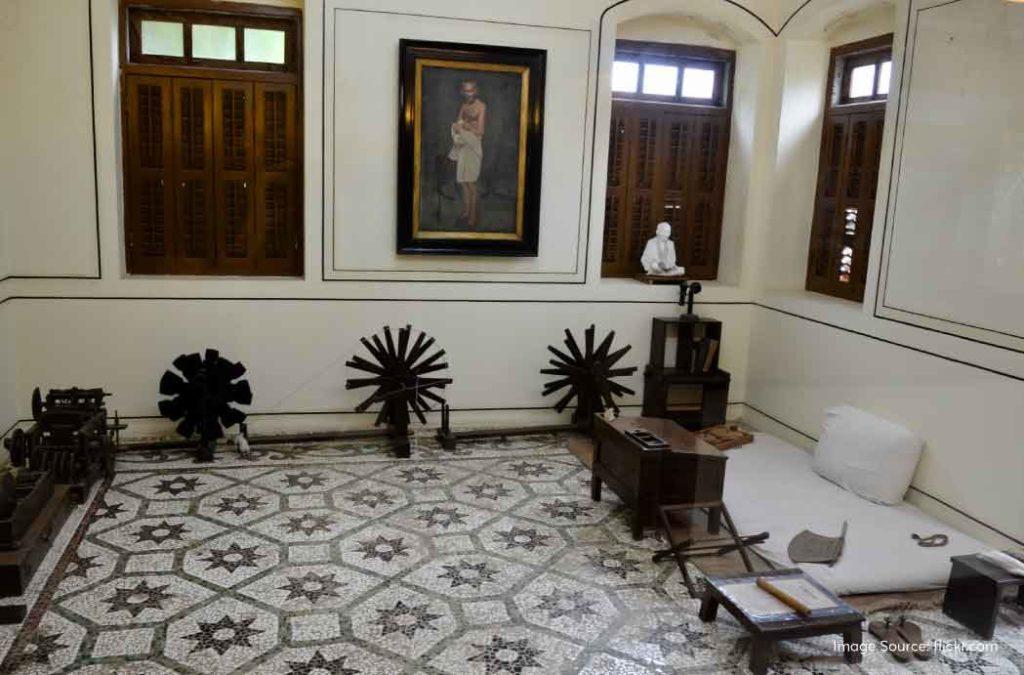
- Visit Gandhi’s memorials or museums dedicated to his life and philosophies. Mani Bhavan is one of the interesting museums in Mumbai that showcases the life, events, acts and glory of the freedom fighter.
- Wear and buy Khadi products to promote the idea of sustainable living.
- Read books or watch documentaries to understand his principles in a comprehensive manner.
- If you use social media, make sure to share quotes and videos on the day of Gandhi Punyatithi.
Famous Quotes and Sayings of Mahatma Gandhi
“An eye for an eye will only make the whole world blind.”
“Non-violence is the greatest force at the disposal of mankind.”
“You may never know what results come of your actions, but if you do nothing, there will be no results.”
“Even if you are a minority of one, the truth is the truth.”
“You may not always be able to control your circumstances, but you can always control your attitude and approach.”
“The earth provides enough to satisfy every man’s needs, but not every man’s greed.”
“Happiness is when what you think, what you say and what you do are in harmony.”
“Live as if you were to die tomorrow. Learn as if you were to live forever.”
Tribute to the Father of the Nation!
Gandhi Punyatithi is a solemn occasion to honour the freedom fighter who gave it all for the nation. Mahatma Gandhi’s commitment to non-violence, truth and equality stands as a reminder to reflect on our principles. His values and morals stand as a guiding light to learn about equality and humanity.
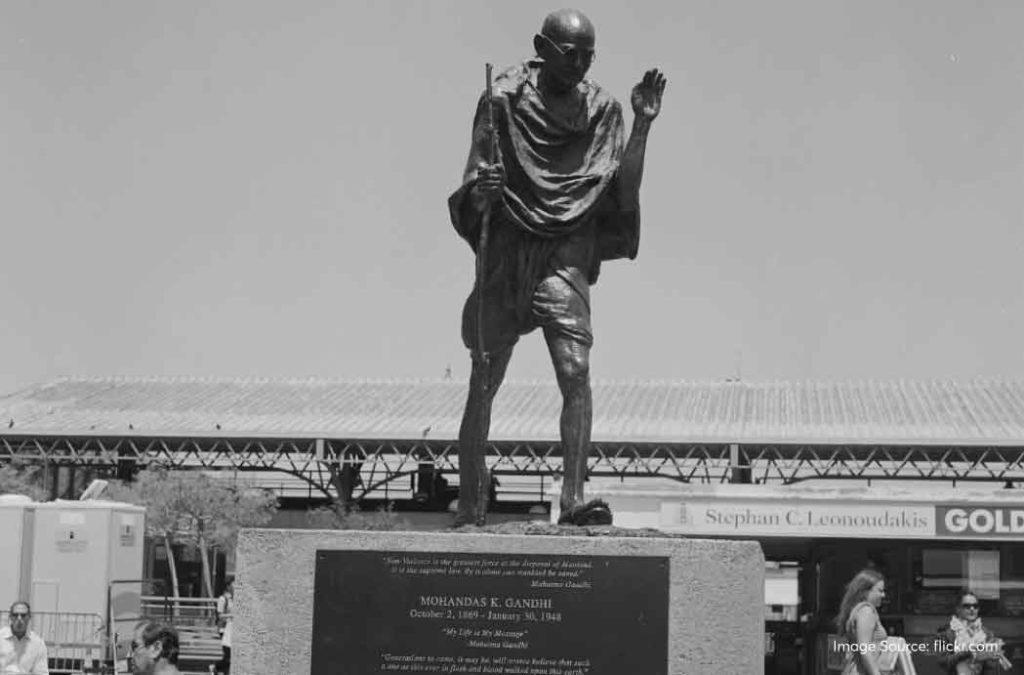
Observing this day with respect allows us to understand how we can integrate his teachings into everyday life. It also allows communities and the general public to modify their thoughts and acts in a way that benefits societies in the long run. As we pay tribute to Gandhi Punyatithi, let us also pledge to uphold his vision, ideas and philosophies. It is the only way we can ensure the long-living legacy of his contributions for future generations.



